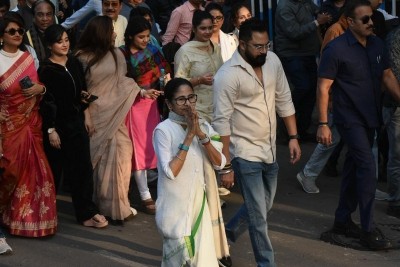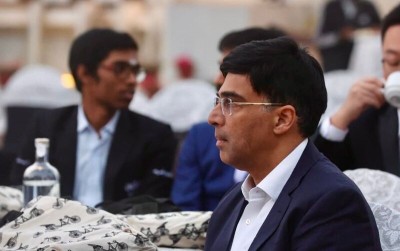 Pakistan Media
Pakistan Media
Independent voices of journalists trampled across Pakistan
Independent voices of journalists, reporters and media personnel continued to be trampled across Pakistan, with the state, its proxies and extremist elements resorting to violence and intimidation.
On August 12, 2023, Jan Muhammad Mahar, a reporter of a Sindhi-language cable television network KTN News, was shot dead in an armed attack by unidentified assailants in the Sukkur District of Sindh. Mahar was in his car when he was attacked, close to his office. According to Media sources, Mahar fearlessly reported on diverse subjects, shedding light on matters of societal and political significance.
On August 7, 2023, Ghulam Asghar Khand, a journalist working for Sobh, a Pakistani daily newspaper in the Sindhi language, was killed by an unidentified assailant in the Ahmedpur area of the Khairpur District of Sindh. Police said that one unidentified assailant opened fire on Khand when he was going to the Press Club, from his home. Various reports indicate that Khand had reported on illegal activities in Amedpur before his death.
On April 28, 2022, 7 News channel reporter Zia-Ur-Rehman Farooqi succumbed to his bullet wounds in Khanewal District of Punjab province. Several assailants stopped and threatened a car carrying media reporters, including Zia-Ur-Rehman Farooqi. Armed individuals opened fire on the journalists, hitting Zia-Ur-Rehman in the head. The other journalists in the car managed to escape unharmed, while the assailants fled the scene. He was suspectedly attacked for his critical reporting on land grabbing schemes in the area.
On February 18, 2022, private TV channel Samaa's Senior Producer Athar Mateen was shot dead in an armed attack on his car in the North Nazimabad area of Karachi. Two robbers were looting a local at gunpoint when, in an attempt to prevent the robbery, Athar Mateen was killed.
According to the South Asia Terrorism Portal (SATP) database, the first incident of killing of journalist inside Pakistan after March 2000, was recorded on September 1, 2001, when Asadullah Khan, a reporter for the Kashmir Press International (KPI) news agency, was shot dead at Shahrah-e-Faisal in Karachi, the provincial capital of Sindh. Asad was on his way by his motorcycle and, near the Pir Bukhari Mazar, unknown armed men intercepted and shot him dead. Since then, according to partial data collated by SATP, at least 69 journalists have been killed and another 28 injured in Pakistan, in 91 incidents (data till August 27, 2023). These numbers are probable underestimations. The Committee to Protect Journalists lists 90 journalists and media workers killed in Pakistan between 2000 and 2021.
Worryingly, the violence towards journalists has been projected beyond Pakistan’s borders.
On October 23, 2022, Arshad Sharif, who was critical of Pakistan’s Army, was killed when Police shot at his car on the outskirts of the Kenyan capital Nairobi. Subsequently, on December 7, 2022, a team of Pakistani investigators stated in a report that Arshad’s killing was a “planned assassination”. The 49-year-old journalist was living in exile after he fled Pakistan in August 2022, to avoid arrest in the wake of numerous cases, including sedition charges, slapped against him for making comments on his Talk Show – Power Play, aired on ARY News channel, deemed offensive to the military. Earlier, Sajid Hussain, a Baloch rights activist and journalist from Pakistan, living under political asylum in Sweden, was found ‘missing’ on March 2, 2020, from Sweden. As he had been forced to flee Pakistan in 2012, after his investigative journalism attracted frequent death threats, Hussain travelled from Oman to Dubai, to Uganda, finally settling in Sweden. His body was later found in the Fyris River in Uppsala on April 23, 2020. Hussain, was working part-time as a professor in Uppsala University, and was also the Chief Editor of Balochistan Times, an online magazine he had set up, in which he wrote about abductions, drug trafficking and the long-running insurgency in Balochistan.
Meanwhile, apart from these killings, the abduction, torture and intimidation of journalists in Pakistan have also broken the spirit of media professionals. Some of the recent incidents of abduction include:
July 8, 2023: Daily Jung's senior journalist, Syed Muhammad Askari, was 'picked up' from near the Qayyumabad KPT Interchange on Korangi Road in Karachi. Askari's car was intercepted without any reason by masked men, while he was returning from a ceremony. Askari introduced himself and told them that he is a reporter for Daily Jung, but he was taken away and beaten up. He returned to his home after more than 24 hours.
May 24, 2023: Senior journalist Sami Abraham of BOL TV was abducted by 'unidentified men' in Islamabad. Abraham's abduction was dramatic as his car was intercepted by four vehicles after he left the BOL TV office and nearly ten men took him away. He returned a week later.
April 28, 2023: Irfan Kalhoro, a local news reporter for Dharti in Sindh, was abducted, tortured, and later arrested in the Pano Aqil District of Sindh province. In the evening Abdullah Chachar, a government employee, along with approximately 15 to 20 armed men, forcibly entered and ransacked Kalhoro's house, detained and tortured him. On his release, instead of acting against the perpetrators, Police officers at Pano Aqil Police Station lodged an FIR against him and arrested him.
April 20, 2023: Gohar Wazir, President of Bannu's National Press Club and a journalist for a privately owned Pashto television channel, was abducted and held in an unknown location for over 30 hours by unidentified assailants. Wazir was reportedly tortured and suffered electric shocks during his illegal confinement.
The detentions of journalists often go unexplained, leaving the families of the victims wondering for months or even years whether their loved one was killed in something as commonplace as a hit-and-run accident or secretly detained by the security forces.
Over the past two decades, Pakistan has produced a moderately vibrant media sector that represents a diversity of political views and opinions. Nevertheless, in recent years, successive governments and the military establishment alike have curtailed media freedom in ways that threaten pluralism and journalistic independence in the country. Over the past decade, the Press has been progressively restrained by different means: new legal mechanisms; physical coercion and violence against journalists; and media blackouts.
Freedom Network, a Pakistan-based media watchdog, recorded at least 140 cases of threats and attacks against journalists, media professionals and media organisations between May 2022 and March 2023. The data shows that violations jumped to 140 in 2022-23 from 86 in 2021-22, indicating an annual increase of around 63 per cent. Freedom Network further noted,
The main types of violations against the journalists were 51 cases (36 per cent) of assault, 21 cases (15 per cent) of attacks that resulted in damage to equipment, homes of journalists or offices of news organizations, and 14 cases (10 per cent) of offline or online threats, including seven death threats. Together these three types of violations accounted for nearly 60 per cent of the total 140 cases. Islamabad emerged as the riskiest place to practice journalism in Pakistan with 40 per cent of the violations (56 out of total 140 cases). Punjab was second worst with 25 per cent of the violations (35 cases) and Sindh a close third at 23 per cent (32 cases). TV was the largest victim medium with at least 97 (69 per cent) of the 140 cases against its practitioners. The second most targeted medium was print with 26 journalists targeted (19 per cent) while digital journalists were attacked or threatened in 15 cases (11 per cent).
Journalists and media personnel faced a fresh spate of attack during the political turmoil surrounding former Prime Minister and Pakistan Tehreek-e-Insaf chairman Imran Khan’s arrest. Amid widespread protests and political instability, Pakistani authorities imposed internet shutdowns and blocked social media platforms, while protestors and Khan’s supporters targeted journalists in violent attacks. Khan was arrested on May 9, 2023, by paramilitary troops on corruption charges. A day after, on May 10, about 200 demonstrators stormed the building housing Radio Pakistan, the state-owned radio station in Peshawar, the capital of Khyber Pakhtunkhwa. They ransacked the reception area and smashed furniture in several studios. The mob later set fire to the building, destroying computer equipment and the station’s historical recordings and three vehicles in the compound. The day before, reporters trying to cover the protests in Peshawar were also attacked by demonstrators. Khan was released by the Supreme Court on May 11, but was re-arrested again on August 5, 2023, and is currently serving a three-year jail sentence for asset concealment.
Pakistani journalists have long faced serious obstacles to their work, including abduction, harassment, intimidation, assault, arbitrary arrest and detention, and death. Moreover, security forces regularly pressure editors to fire or muzzle reporters, while the government starves critical news outlets of advertising funds, and even refuses to settle previous bills. Anchors have frequently seen their newscasts or programmes cut off in the middle of a broadcast.
The state of affairs in Pakistan has consistently prevented free information from flowing via the media. The risk of being recognised, identified, and assassinated as a free-thinking and fearless journalist is extremely high.
Additionally, the fear of complicated governmental rules creates a climate of constant danger for both media outlets and journalists, particularly when covering critical political or anti-establishment stories, or terrorism-related incidents in the country.
Support Our Journalism
We cannot do without you.. your contribution supports unbiased journalism
IBNS is not driven by any ism- not wokeism, not racism, not skewed secularism, not hyper right-wing or left liberal ideals, nor by any hardline religious beliefs or hyper nationalism. We want to serve you good old objective news, as they are. We do not judge or preach. We let people decide for themselves. We only try to present factual and well-sourced news.







